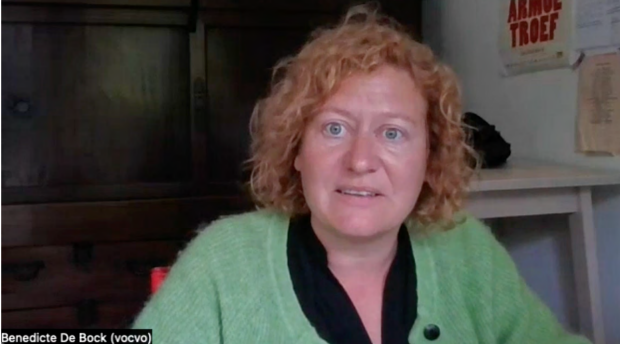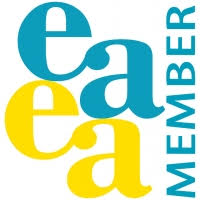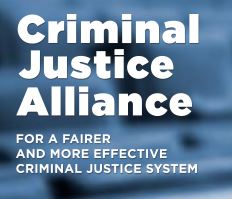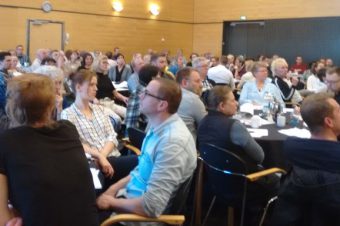
Benedicte de Bock is a project coordinator of Vocvo vzw in Belgium. She has a Bachelor in Social Work and she is actually finishing her master degree at the University of Antwerp.
Benedicte, please tell us something about yourself. Who are you? What’s your relation with education in prison?
- Since January 2020, I have been project coordinator of the project Learning Inside Out (LIO). Before that, I was education coordinator in several prisons: Oudenaarde, Antwerp, Ghent and Dendermonde. An explanatory note, an education coordinator is responsible for the educational offer in a prison. Educational institutions that are active in society also provide an offer in prison. This offer is focused on the needs and requirements of the inmates staying there.
How and when did you become a teacher/professional in prison?
- I started in the Oudenaarde prison as part of a project that guided inmates with long-term sentences in finding work and followed them up for the first few months. That’s where the microbe to work in prison started. In August 2014, a vacancy came up for education coordinator in the prison of Ghent. I grabbed it with 2 hands.
What do you like about your job? What is demanding?
- By focusing on education, you are working toward a positive future. I find that education is much more than just knowledge transfer. It causes students to develop themselves, gain a more positive self-image and also reflect on other things outside the subject matter. Yet it is not just a positive story. It is not always possible to organise group classes that meet all the needs and requirements of inmates. There are also several constraints within detention – limited number of classrooms and schedules, limited digital capabilities – that complicate education in prison
Compared to the other countries, what do you appreciate about education in the penal system in Belgium? Where do you still see potential? How is prison education integrated into the national educational system?
- I am an advocate of the import model: schools operating in the community offer the same courses in prison. The advantages are: the courses follow the curriculum imposed by the government, the teachers form a connection with the outside world and when an inmate leaves prison, he can easily continue his education. As I mentioned earlier, there are some limitations: the offer does not always meet the needs of detainees, there is a limited place to participate or they experience other needs to complete their studies.
Detainees who do not fall under the greatest common denominator are often excluded from educational offerings. For example, the dissemination of information and the enrolment process is not accessible to those with low literacy. On the other hand, inmates with a secondary school diploma or higher find it difficult to continue their development within the existing range.
What is the LIO project about?
- LIO is a project sponsored by the European Social Fund. The project offers educational guidance to all prisoners in Flanders and Brussels who want to learn. This guidance is provided by services that are also active in the community. The education counsellors handle requests for information or set up long-term learning programs. Unique to the LIO project is the possibility of further guidance after release. The education counsellors look at the competencies, interests and skills of the detainees and work out a study path with them so they increase the likelihood of successful reintegration. The operation of LIO is complementary to the courses and training programs offered in prison.
What did you achieve with the project? How is the project running actually?
- Education counsellors focused on several services:
- (re)Directing to the appropriate training
- support with practical issues such as: registration with the Examination Board This is a government service that allows youth and adults to obtain a high school degree through an alternative, extracurricular route or an educational institution, access to study materials, organising exams, …
- Support after detention because the students often need to complete their training after detention (specific practical training, internships, labs, …).
- This is what the education counsellors accomplished in the 2022-2023 school year:
- 1444 new inmates found their way to services (data form 2019 indicated that about 6,000 inmates resided in Flemish and Brussels prisons)
- 137 inmates were enrolled in the examination board and 11 of them obtained their high school diploma
- 23 inmates followed training at a Centre for Adult Education, 36 in a university of applied sciences and 13 in a university.
- 72% of all LIO participants do not have a high school diploma. Of that group, 50% are very low skilled. These people have serious literacy and numeracy needs, which requires additional efforts to enable their participation in educational programs.
What are the consequences of the LIO project budget cuts for VOCVO and eventually the students in prison?
- LIO is paid for by the European Social Fund. This funding expires at the end of 2023. Specifically, this means that 209 students will not be able to complete their studies, low-literates will no longer be referred to the educational offerings, there will no longer be an orientation to a suitable course, … To counter this, we are negotiating with the Flemish government to take over this service. Unfortunately, so far, those efforts have not been successful.
Do you have any expectations or hopes in being able to continue the project somehow?
- Since the news broke that LIO no longer has funding for 2024, the reactions came from various sides: first and foremost, from the prisons, the various schools we work with, lawyers, politicians, … We are pushing for a hearing in the Flemish parliament so that we can present our problem to all Flemish parliamentarians. Several actions will be organised in the run-up to this hearing.
Dear Benedicte, thank you for the interview.


![The magazine of the therapeutical and educational unit – Unit 8 – at El Acebuche Prison in Almería, Spain [EN|ES]](https://www.epea.org/wp-content/themes/pinnacle/assets/img/placeholder-min.jpg)


